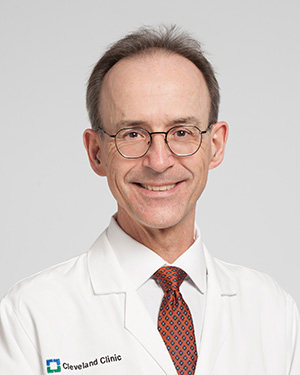Research News
09/25/2024
CAR T-cell therapy cures acute lymphoblastic leukemia in children and young adults based on immune factors
Patients with more type 2 T cells were likelier to be cancer free eight years after CAR T-cell immunotherapy, a result replicated in preclinical trials.

A research team co-led by Jos Melenhorst, PhD, has discovered how to increase CAR T-cell therapy’s cure rate for acute lymphoblastic leukemia (ALL) in children and young adults. Their study, published in Nature, has identified factors in the immune system that contributed to pediatric ALL patients remaining cancer-free eight years after clinical trials.
The team found numerous differences in the immune cells and molecules present in 25 ALL patients cured of their cancer, and those who went into remission but did not stay cancer-free for five years. Authors then replicated the cured children's so-called “immune signature” in preclinical models using one cytokine which they identified as a critical driver of long-term remissions and immune cells with CAR T-cell therapy. Chimeric antigen receptor (CAR) T-cell therapy is a treatment where a patient’s own immune cells (isolated via blood draw) are genetically engineered to better find and fight cancerous cells. Engineered CAR T cells are meant to act as “living drugs” that persist and replicate in the patient’s system to continually fight off cancer and provide durable, non-relapsing cures long after the initial injection.
Dr. Melenhorst, who now directs Cleveland Clinic’s Cell Therapy & Immuno-Engineering Program, was involved in the initial clinical trials that took place at the University of Pennsylvania starting in 2012. His research served as a basis the team used to design the patient’s CAR T cells, and he and his team helped conduct follow-up research over an eight-year period to track the patient’s immune response. The goal of the follow-up research was to refine the design of the CAR T cells used in therapy. The research team can now engineer improved CAR T cells based on each patient’s immune system, maximizing their chances of a cure.
“We usually measure a therapy’s success based on 5-year survival, even if the cancer is still there,” says Dr. Melenhorst, vice chair of the Center for Immunotherapy & Precision Immuno-Oncology. “30% of the patients from these clinical trials are still cancer-free almost a decade later, which shows that CAR T-cell therapy has an excellent cure rate. These successes just highlight how much further we need to go to bring CAR T-cell therapy’s success rate to 100% and make this therapy work for everyone.”
The researchers found that children who were cured of their ALL had a unique combination of immune cell types in their systems. Compared to their peers who experienced cancer relapse, the 25 cured children had more type 2 T cells, which induce antibody-mediated immune responses to cancer, and more inflammation-inducing cytokines, including one called IL-4.
When Dr. Melenhorst’s team pre-treated CAR T cells with IL-4, they were able to recreate the type-2 dominant immune landscape associated with favorable outcomes and achieve higher cure and survival rates in preclinical ALL models. Dr. Melenhorst and his team are currently working to further understand the anticancer role of type 2 T cells in immunotherapy. Their work is supported by a VeloSano grant, which will allow them to study multiple forms of blood cancer.
“We were very surprised to see such a strong connection between type 2 immune signatures and durable leukemia remission,” says Dr. Melenhorst. “Imbalances between type 1 and 2 immunity is usually studied in the context of infectious disease, allergies, or autoimmune disorders. Not much has been done to investigate how someone’s immune landscape helps them respond to cancer.”
Studies are already underway to better understand the role of Type 2 T cells in cancer, and Dr. Melenhorst is featured as a co-investigator in a companion paper in the same issue of Nature that extends the role of these immune cells into other tumor responses.
“Our research underscores the importance of this T cell subset and the critical role they play in tumor immunity,” he says.
Featured Experts
News Category
Related News
Research areas
Want To Support Ground-Breaking Research at Cleveland Clinic?
Discover how you can help Cleveland Clinic save lives and continue to lead the transformation of healthcare.
Give to Cleveland Clinic